10 Media Stories That Shook the Industry in 2023
- Oops!Something went wrong.Please try again later.
- Oops!Something went wrong.Please try again later.
The media industry occupied center stage in the news cycle in 2023, with high-profile ousters, massive legal settlements, social media and technology arms races, and economic headwinds impacting an already vulnerable advertising environment.
And while 2023 will likely be best remembered as the year Elon Musk rebranded Twitter to X and ushered in controversy, it also featured a wave of media layoffs, cable news drama and more newsroom experiments with artificial intelligence to create content.
Read on for our picks of 10 media stories that most significantly shook the landscape in 2023, with the reverberations of many destined to be felt well into 2024.
Musk devalues his own asset
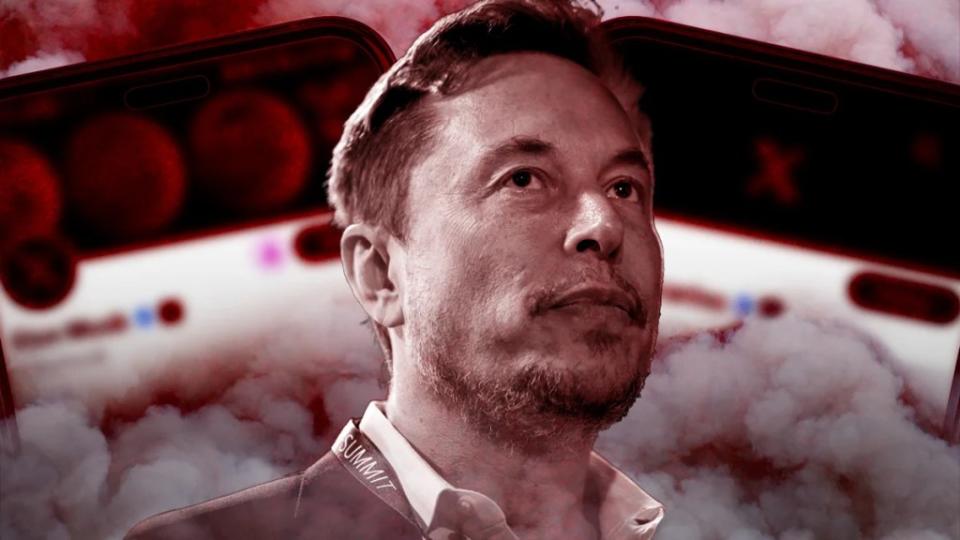
Although we didn’t get the cage match we were promised, Elon Musk’s first year of X (formerly Twitter) ownership was anything but uneventful. In 2023, the billionaire rebranded the platform, hired NBCUniversal advertising veteran Linda Yaccarino as CEO, alienated advertisers and spread conspiracy theories and antisemitic sentiment to his nearly 167 million followers. Arguing that X is the digital “town square,” Musk invited extremist figures like Alex Jones back to the platform, elevating their problematic rhetoric on X. It seems as though Musk is attempting to signal that he wants the platform to run counter to legacy and mainstream media while fostering a new model for a right-wing, tech-led media ecosystem. However, the platform is seeing the dire consequences of Musk’s roughshod approach to such a strategy.
As of the end of October, X was internally valued at $19 billion, less than half of the $44 billion Musk paid for the platform one year before, according to a leaked employee equity compensation plan. And internal documents reviewed by The New York Times showed that X could potentially lose as much as $75 million in advertising revenue by the end of the year.
Musk’s behavior and changes to the platform have invited a bevy of competitors into the scene, including Meta’s Threads, which is gaining traction.
Fox News settles with Dominion

The day that Dominion Voting System’s trial against Fox News was set to begin, the network agreed in April to pay a whopping $787.5 million to settle the case. Dominion claimed the network intentionally circulated unproven lies about the company’s voting machines in an effort to advance Donald Trump’s “big lie” that the 2020 election was stolen. The case was settled just as the clock ran out, but not before a revealing discovery period that publicized internal communications at Fox News, including comments from Rupert Murdoch that ran counter to the narrative being broadcast on Fox News after the election. While the settlement prevented any testimony from Fox News executives and hosts, the payout proved to many that Fox was responsible for pushing false narratives that encouraged many to question American democracy.
Fox News is far from being out of the woods in terms of legal challenges. The network faces an even larger lawsuit from another voting technology company, Smartmatic, which is suing Fox for $2.7 billion in damages.
“We will be ready to defend this case surrounding extremely newsworthy events when it goes to trial, likely in 2025,” Fox said in a statement to TheWrap. “As a report prepared by our financial expert shows, Smartmatic’s damages claims are implausible, disconnected from reality, and on its face intended to chill First Amendment freedoms.”
Fox News ousts Tucker Carlson
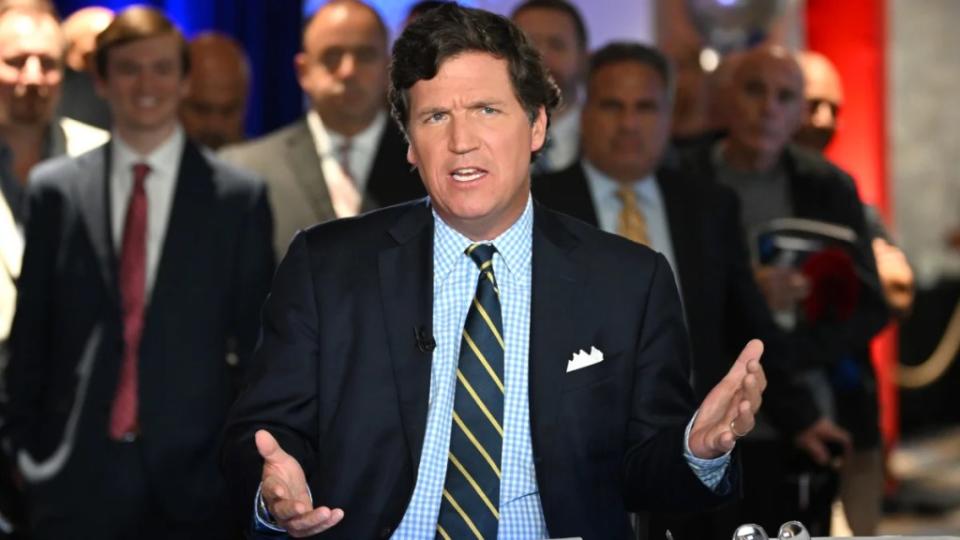
In a move that astonished many, including the Fox News anchor himself, Tucker Carlson was abruptly fired from the network in April, leaving the host without an opportunity to say goodbye to his massive viewership. Carlson was quick to publicly assume that he was ousted as a consequence of the Dominion settlement, but both Fox Corp. and Dominion pushed back against that narrative, calling the assumption “categorically” false.
Carlson immediately took his talents to Elon Musk’s X, creating interview content for the social media platform (and sitting down with Kevin Spacey on Christmas Eve). Then in December, he launched his own subscription streaming service, an extension of the programming posted to X. Former White House adviser Neil Patel will become the streaming service’s chief executive. Carlson and Patel were college roommates and worked together to found the Daily Caller, of which Patel is still in control. Patel and Carson have been working together to fund the project, recently bringing in a $15 million seed round, led by 1789 Capital.
While feeding into the right-wing, technology-led media surge, Carlson’s streaming service is not a bad business move. But it is unlikely the host will ever be able to recoup the full audience he once garnered at Fox News.
Open AI’s Sam Altman saga

After initiating a full-blown AI arms race, the board of OpenAI ousted and then swiftly welcomed back CEO Sam Altman in November, shocking Silicon Valley and Wall Street.
The AI company’s influence is unmatched across the industry, only one year after launching ChatGPT, which has taken the technology, business and even news industry by storm. OpenAI’s board cited concerns over its communication with the CEO, stating that he wasn’t always candid with the board and that they’d lost faith in his ability to lead the company. According to media reports, that wasn’t the full story — some inside the company were questioning the commercialization of OpenAI and the speed of development which could be seen as precarious.
The firing drew significant pushback from OpenAI employees, who threatened to quit without Altman, and from Microsoft, which has invested billions into the AI company. Overnight, OpenAI showed how vulnerable it is and how crucial Altman is to the mission driving the organization.
Rupert Murdoch steps down (kind of)
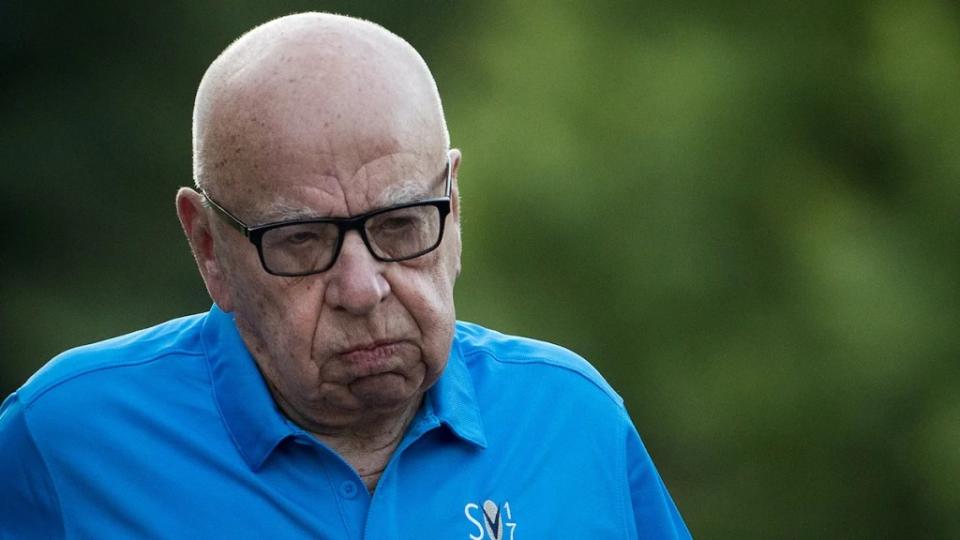
The industry was stunned in September when media kingmaker Rupert Murdoch stepped down from his role as chairman of Fox Corp. and News Corp, handing the keys to the kingdom to his eldest son Lachlan. The 92-year-old Murdoch — one of the most influential figures in media history — became Chairman Emeritus of each company, while Lachlan became the sole chair of News Corp. two months later, maintaining his role as executive chair and CEO of Fox Corp.
The outdoing media mogul, nevertheless, said he would still “be involved every day in the contest of ideas.” And he is not excused from legal obligations in the fallout from the network’s coverage of the 2020 presidential election. In December, Murdoch sat for a sworn deposition in the second major defamation lawsuit from an election technology company. His deposition in the Dominion case was thought to have hurt Fox’s chances in court, which eventually ended in a massive settlement.
The chaos at CNN
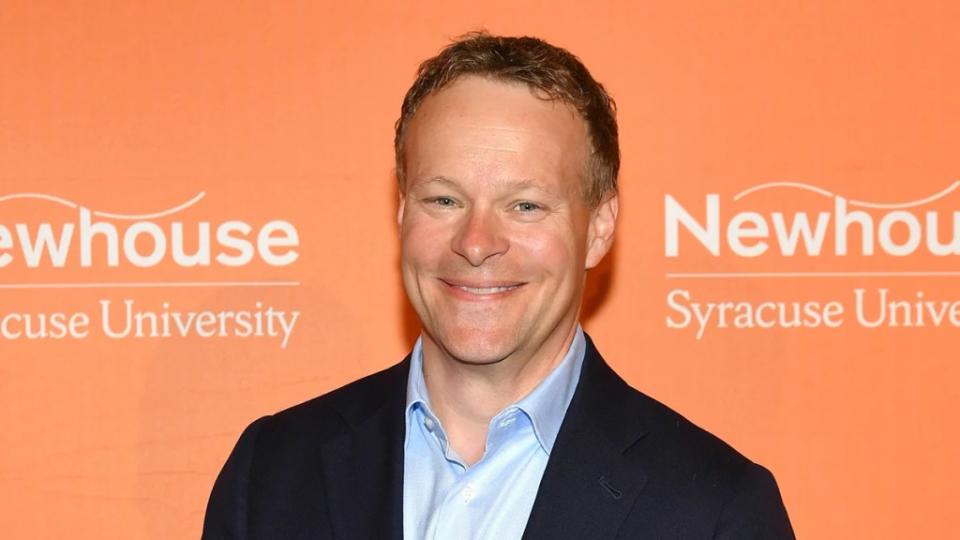
The CNN mothership had a rocky year, to say the least. CEO Chris Licht’s tenure was marred by poorly received programming decisions (CNN This Morning with Kaitlan Collins, Don Lemon, and Poppy Harlow), plummeting advertising revenue and a controversial live town hall with Donald Trump. Shortly after the town hall event, The Atlantic published a devastating profile of Licht by Tim Alberta, a story thought to have initiated Licht’s official ouster from the network in June.
Former New York Times CEO Mark Thompson took over the reins at CNN, saying the network had a lot of ground to make up. “There’s no magic wand that I or anyone else can wield to make this disruption go away,” Thompson said in his first note to CNN staffers. But he said he sees light at the end of the tunnel and intends to transform the network’s digital presence.
Free Evan from Russia
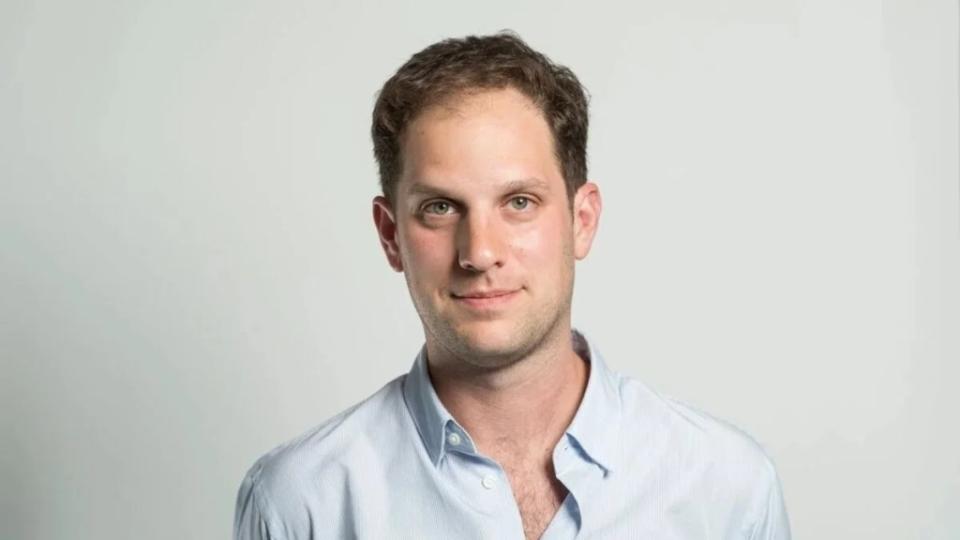
Wall Street Journal reporter Evan Gershkovich was arrested and detained in Russia in March under bogus allegations of espionage. He remains in prison. While the United States continues to work tirelessly for Gershkovich’s release, his arrest represents the mounting dangers of being a journalist working in an authoritarian regime.
The Committee to Protect Journalists reports that 86 journalists and media employees were killed, 362 imprisoned, and 65 went missing globally in 2023 (numbers are subject to change by the end of the year).
While Gershkovich’s family, friends and the American public are all hoping for his safe return, Russian President Vladimir Putin said earlier this month that he wants to “reach an agreement” on the Wall Street Journal reporter’s release. In Putin’s first public comments regarding Gershkovich, the Russian President claimed he is not hindering a negotiated release, but desires a “mutually acceptable” agreement that “must suit both sides.”
Media layoffs explode

2023 was not a particularly joyous year for the media industry, which was rocked by a slew of layoffs. In the last month alone, Condé Nast, G/O Media, Vice Media and Vox Media have all cut staff, most of whom already had layoffs earlier this year. According to a report from employment firm Challenger, Gray & Christmas, broadcast, print and digital outlets collectively saw 2,681 journalism job cuts in 2023, up 48% from 1,808 in 2022 and 77% from 1,511 in 2021.
A collapsing advertising-revenue model drove job cuts in 2023, as executives face difficult decisions on whether to lay off staff or sell off unprofitable assets. And the dim outlook doesn’t appear to be letting up anytime soon. U.S. newspaper publishers are expected to lose $2.4 billion in advertising investment between 2021 and 2026, mostly related to less print advertising, according to a 2022 report from the consulting firm PwC.
The prospect of “news deserts,” has never been more real, and without substantial investment into media, the industry is likely to suffer further.
Fog of war in the Middle East

The absolute best and worst of the media industry was on full display amid the outbreak of war between Israel and Hamas in October. Foreign reporters like CNN’s Clarissa Ward and Fox News’ Trey Yingst flexed their sourcing and told a story of suffering and destruction on both sides of the conflict. However, the fog of war loomed large over the industry during the conflagration in the Middle East, creating a surge of misinformation, unlike anything seen in at least the past few decades.
The most explicit example was the deadly explosion at Al-Ahli Arab Hospital in Gaza in October. Immediately after the explosion, Hamas claimed an Israeli air strike on the hospital led to the loss of 500 lives, and news organizations prematurely pointed the finger at Israel as the source of the explosion. Outlets including The New York Times and the BBC ran with early reports based on incomplete information, fueling widespread condemnation of Israel across the globe.
Information has since come out that Israel was likely not responsible for the explosion and that the death toll was not as high as previously reported. The New York Times published an editors’ note acknowledging missteps in its coverage of the Gaza hospital blast, saying the paper “relied too heavily on claims by Hamas” in its initial reporting.
But the damage was already done.
AI inserts itself into newsrooms
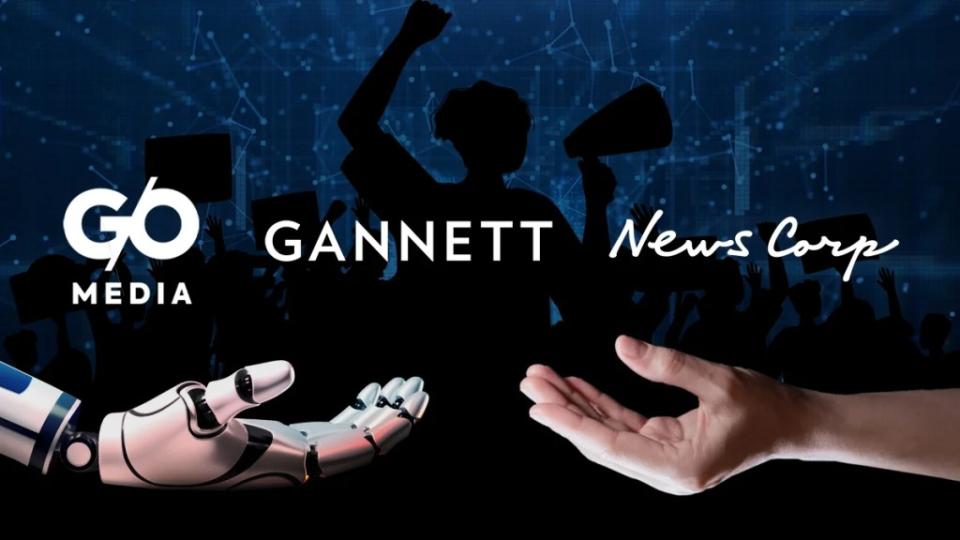
The media landscape is undergoing a significant shift as AI increasingly permeates newsrooms, prompting traditional outlets to reconsider their approach to the technology as the industry grapples with how to use it effectively and safely.
Some media organizations like G/O Media adopted generative AI unabashedly and without proper disclosures, outraging newsroom staff, while other legacy companies, such as News Corp., pivoted from initial skepticism to exploring revenue-generating partnerships. This shift raises fundamental questions for news organizations, forcing them to consider the balance of profit and responsible journalism, as new technology enters the industry at a rapid pace.
The implications of generative AI experimentation in media emphasize concerns about the potential erosion of journalistic integrity and the impact on employment in the industry. And experimentation is only going to become more widespread in 2024 as AI continues to evolve.
The post 10 Media Stories That Shook the Industry in 2023 appeared first on TheWrap.

